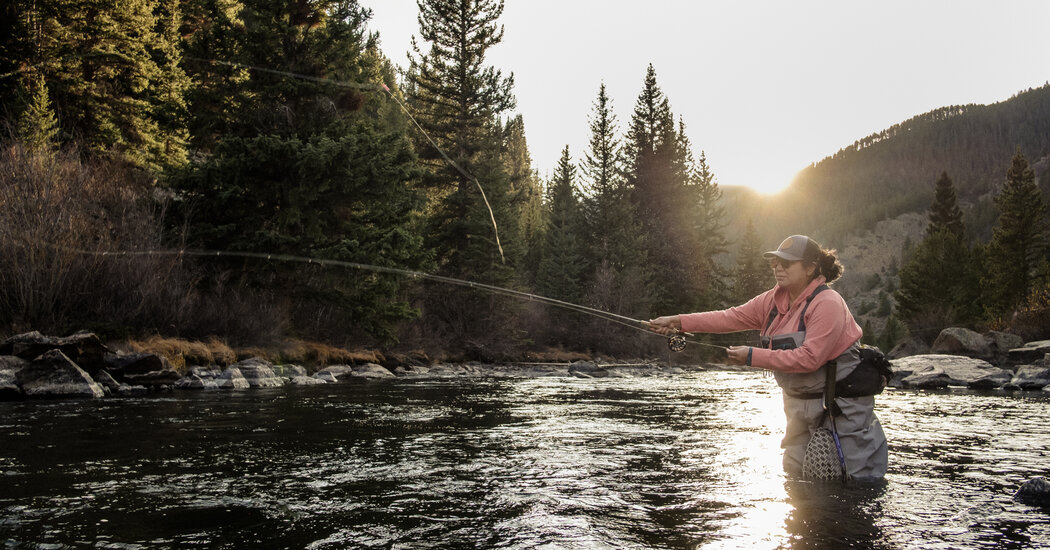
I lived in Wyoming, so anyone I’d meet online would be three hours away. Some men, many of them fishing guides, were open to answering questions (and I had lots). After establishing some trust, I’d visit for a fishing weekend where I learned basic casting, insect hatch patterns, rigging techniques and equipment maintenance. That first fish is so many things: It’s excitement, accomplishment, reinforcement. They say the tug is the drug. It’s like gambling; you just want more.
Your podcast is called “Awkward Angler.” How awkward are you?
When I started fishing, I had these picturesque visions of big, long, dramatic casts like Brad Pitt in “A River Runs Through It.” What I experienced instead was doing a back cast and hooking my fly in overhanging tree branches behind me. I fell on slippery rocks. It turned into a lot of patience, frustration and untangling. I caught more trees than fish. I didn’t know anything about how to handle a fish or properly remove a hook. It’s probably good I didn’t catch anything at first.
On top of this, I’d walk into a fly shop and encounter no one like me. I started the Instagram account Awkward Angler to keep asking for advice, but also to connect with others internationally and across the U.S. Who else out there is fishing and looks and thinks like me? Is there anyone who is not a cisgender, white male? I ended up meeting women of color, nonbinary anglers, transgender anglers, anglers who are neuro-divergent or with different physical abilities.
Is there more diversity across the sport now than when you started?
When I started fishing in 2016 there may have been brown people fly fishing, but I didn’t know any, and I never saw them. In the entire state of Colorado there were no women of color guiding. Now there is a woman from outside Colorado Springs and me.
In the wake of George Floyd’s murder, people have had the realization that racism does happen in this country, and it trickles down to fly fishing. Since the start of the pandemic, lots of new people tried fly fishing for the first time, and we started to see a shift in demographics. I’ve had people with marginalized identities such as LGBTQ+ and unlabeled folks, women, women of color reach out to connect and to express appreciation that I’m not afraid to speak up for us and our voices. And they’re booking as clients, so I’m taking them out and introducing them to fly fishing.
What is the Angling for All pledge?
The Angling for All pledge involves a training curriculum in diversity, equity and inclusion and making a commitment to address racism and inequality in fishing and its industry.




